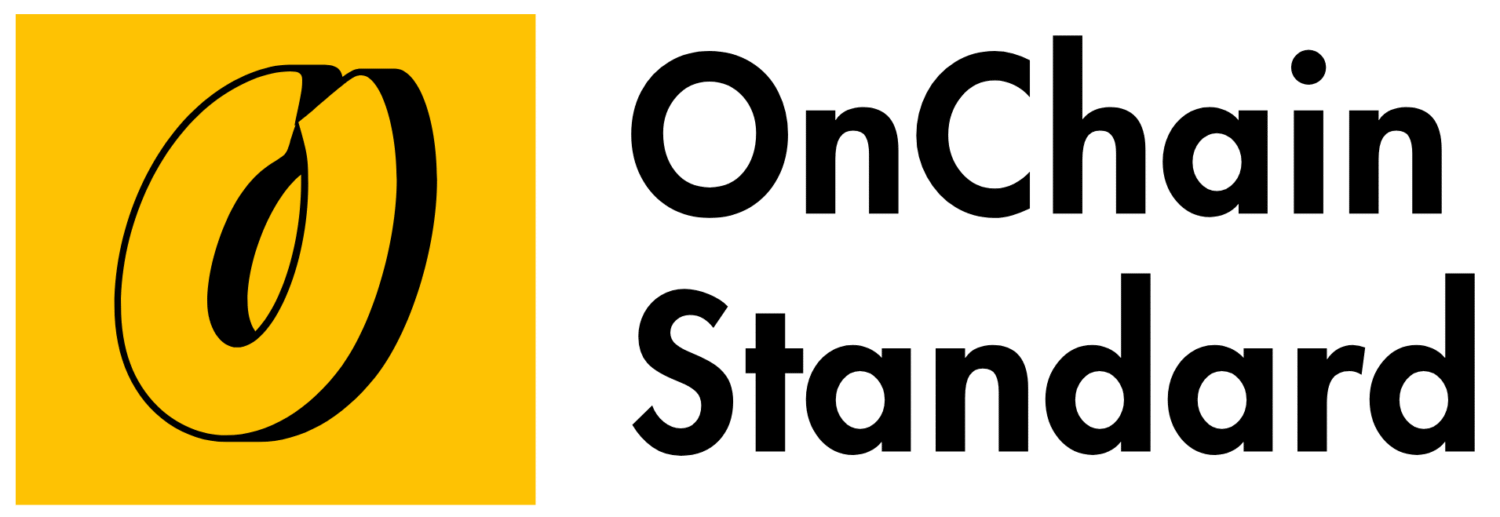Top Crypto-Friendly Countries to Incorporate Your Web3 Startup in 2025
Discover the top crypto-friendly countries for Web3 startup incorporation in 2025, including Switzerland, Singapore, UAE, and more. Learn about regulations, tax benefits, and ecosystems.
Introduction
The Web3 industry, encompassing blockchain, decentralized finance (DeFi), non-fungible tokens (NFTs), and decentralized autonomous organizations (DAOs), is booming in 2025. However, navigating the global regulatory landscape is critical for Web3 startups aiming to incorporate in jurisdictions that foster innovation while ensuring compliance. Crypto-friendly countries offer clear regulations, tax incentives, and robust ecosystems, making them ideal for launching Web3 ventures. This article explores the top crypto-friendly countries for incorporating your Web3 startup in 2025, highlighting their advantages, policies, and suitability for various business models.
Criteria for Choosing a Crypto-Friendly Country
Selecting the right jurisdiction depends on your Web3 startup’s business model (e.g., token issuance, DeFi, NFT marketplace, crypto exchange) and operational needs. Key criteria include:
- Regulatory Clarity: Transparent laws governing cryptocurrencies, token issuance, and blockchain operations reduce legal risks.
- Tax Benefits: Low or zero capital gains tax, corporate tax exemptions, or favorable crypto tax policies enhance profitability.
- Ecosystem Support: Access to blockchain hubs, talent pools, venture capital (VC), and crypto-friendly banks streamlines growth.
- Banking Access: Financial institutions supporting crypto transactions ensure seamless fiat-to-crypto conversions.
- Innovation Incentives: Government-backed initiatives, grants, or sandboxes foster Web3 development.
- Global Connectivity: Strategic locations with access to international markets and investors boost scalability.
Top Crypto-Friendly Countries for Web3 Startups in 2025
Based on regulatory frameworks, ecosystem maturity, and Web3 adoption trends in 2025, the following countries stand out as top destinations for incorporating your Web3 startup.
- Switzerland
- Why Choose Switzerland? Known as “Crypto Valley” in Zug, Switzerland is a global leader in blockchain innovation, hosting over 1,130 blockchain firms, including Ethereum and the Crypto Valley Association. Its progressive regulations and financial privacy tradition make it ideal for Web3 startups.
- Regulatory Framework:
- The Swiss Financial Market Supervisory Authority (FINMA) provides clear guidelines for initial coin offerings (ICOs), security token offerings (STOs), and token classification (utility, payment, or asset tokens).
- The Distributed Ledger Technology (DLT) Act (2021) recognizes smart contracts and DAOs, enabling legal frameworks for decentralized governance.
- Anti-money laundering (AML) compliance is strict but transparent, ensuring trust without stifling innovation.
- Tax Benefits:
- No capital gains tax for individuals on crypto trading; corporate tax rates in Zug range from 11.9% to 14.6%.
- Crypto held over one year is often tax-exempt for individuals, attracting long-term investors.
- Ecosystem:
- Home to 32 licensed crypto banks and 1,130 Bitcoin ATMs, per the Global Web3 Index 2024.
- Universities like ETH Zurich offer blockchain programs, and events like Crypto Valley Conference drive networking.
- VC firms like SignalFire and A16Z invest heavily in Swiss Web3 startups.
- Best For: Token issuance, DAOs, DeFi projects, and custodial wallets. Multi-entity setups (e.g., Swiss Foundation with a token SPV) are popular for DAOs.
- Example: Ethereum Foundation and Tezos are headquartered in Zug, leveraging Switzerland’s legal clarity.
- Singapore
- Why Choose Singapore? A major Asian blockchain hub, Singapore balances innovation with robust oversight, hosting over 200 blockchain startups and attracting global VC like Polychain Capital.
- Regulatory Framework:
- The Monetary Authority of Singapore (MAS) regulates via the Payment Services Act (PSA), offering clear licensing for digital asset service providers (e.g., exchanges, wallets).
- MAS’ Regulatory Sandbox allows startups to test Web3 products under relaxed rules, fostering experimentation.
- Recognizes DAOs and smart contracts, supporting DeFi and NFT platforms.
- Tax Benefits:
- No capital gains tax on crypto transactions for individuals or long-term corporate holdings.
- Corporate tax rates range from 0% to 17%, with exemptions for startups under the Startup Tax Exemption Scheme.
- Ecosystem:
- Universities like NUS and SMU offer blockchain courses; events like Singapore Blockchain Week attract 10,000+ attendees.
- Crypto-friendly banks like DBS support fiat-crypto transactions, and Singapore’s ISO certification ensures compliance.
- Home to Web3 firms like CoinDCX and Cega, per Seedtable’s 2025 ranking.
- Best For: Centralized exchanges, DeFi projects, play-to-earn (P2E) games, and stablecoin issuance.
- Example: Binance Asia and Alchemy have Singapore offices, leveraging its global connectivity.
- United Arab Emirates (UAE)
- Why Choose UAE? Dubai and Abu Dhabi are global crypto hubs, with the UAE ranking third in the Global Web3 Index 2024 and leading in crypto ownership (25.3% of adults). Its tax-free policies and free zones attract Web3 entrepreneurs.
- Regulatory Framework:
- Dubai’s Virtual Assets Regulatory Authority (VARA) provides a comprehensive framework for licensing crypto businesses, covering exchanges, custodians, and NFT platforms.
- Abu Dhabi Global Market (ADGM) regulates token issuance, including DLT foundations for DAOs.
- The Dubai Blockchain Strategy (2016) aims for blockchain-powered government services, fostering adoption.
- Tax Benefits:
- 0% capital gains tax and 0% corporate tax on crypto gains held over 12 months; 9% corporate tax applies otherwise.
- Tax-free zones like Dubai Multi Commodities Centre (DMCC) offer 0% tax for blockchain startups.
- Ecosystem:
- Events like World Blockchain Summit and Crypto Oasis draw 15,000+ developers and investors annually.
- Khalifa University offers blockchain education, and VC funding reached $2 billion in 2024.
- Crypto-friendly banks like Emirates NBD support Web3 firms, per X posts.
- Best For: NFT platforms, centralized exchanges, DeFi projects, and DAOs (e.g., RAK Digital Assets Oasis for DAO associations).
- Example: Binance relocated its Middle East operations to Dubai, citing VARA’s clarity.
- Estonia
- Why Choose Estonia? A pioneer in digital innovation, Estonia’s e-Residency program and crypto-friendly policies make it a top choice for European Web3 startups, especially for small to mid-sized ventures.
- Regulatory Framework:
- The Financial Intelligence Unit (FIU) licenses crypto service providers under the Money Laundering and Terrorist Financing Prevention Act (MLTFPA), updated in 2020.
- Clear AML/KYC rules ensure compliance without stifling growth.
- e-Residency allows global founders to incorporate remotely, managing EU-based businesses.
- Tax Benefits:
- 0% corporate tax on reinvested profits; 20% on distributed dividends.
- No capital gains tax for individuals on crypto trading, though corporate crypto gains are taxed.
- Ecosystem:
- Over 1,000 blockchain startups, including custodial wallet providers, per LegalNodes.
- Tallinn hosts Baltic Blockchain Summit, attracting 5,000+ participants.
- Banks like LHV support crypto transactions, and Estonia’s digital infrastructure (99% online public services) simplifies operations.
- Best For: Centralized exchanges, custodial wallets, and DeFi projects.
- Example: Striga, a Web3 infrastructure provider, operates from Estonia, leveraging its API-friendly environment.
- Cayman Islands
- Why Choose Cayman Islands? An offshore financial center with flexible regulations, the Cayman Islands is a hotspot for token issuance and DAOs, offering privacy and tax advantages.
- Regulatory Framework:
- The Virtual Asset (Service Providers) Act (VASP) regulates crypto businesses, with tailored licensing for token sales and exchanges.
- Cayman Foundation Companies are popular for DAO legal wrappers, managing token issuance and treasuries, per LegalNodes.
- Supports multi-entity setups (e.g., TokenCo and foundation) for complex Web3 projects.
- Tax Benefits:
- 0% corporate and capital gains tax, ideal for high-growth startups.
- No withholding tax on dividends or royalties, facilitating global operations.
- Ecosystem:
- Over 500 blockchain firms, including DeFi and NFT platforms, per LegalNodes.
- Access to global VC firms like Bain Capital Crypto, with $1 billion invested in 2024.
- Limited local banking, but offshore banks like Butterfield support crypto.
- Best For: Token issuance (ICOs, STOs), DAOs, NFT platforms, and P2E games.
- Example: Many DeFi protocols use Cayman Foundations for token governance, per LegalNodes.
- Malta
- Why Choose Malta? Dubbed “Blockchain Island,” Malta’s early adoption of blockchain laws and EU membership make it a strategic choice, despite licensing delays noted in 2022.
- Regulatory Framework:
- The Virtual Financial Assets (VFA) Act, Technology Arrangements and Services Act, and Malta Digital Innovation Authority Act (2018) regulate crypto businesses.
- The Malta Financial Services Authority (MFSA) licenses exchanges and custodians, though processing can be slow.
- Recognizes DAOs and smart contracts, supporting DeFi and NFT platforms.
- Tax Benefits:
- No capital gains tax for long-term crypto investments by foreign residents or offshore companies.
- Corporate tax rates start at 35% but can be reduced to 5% via refunds for non-residents.
- Ecosystem:
- Hosts Binance’s headquarters and over 300 blockchain startups.
- Malta Blockchain Summit attracts 8,000+ attendees, fostering networking.
- Banks like Bank of Valletta are warming to crypto, per 2025 updates.
- Best For: Centralized exchanges, custodial wallets, and DeFi projects.
- Example: Binance leverages Malta’s VFA framework for its global operations.
- United States (Wyoming)
- Why Choose the U.S. (Wyoming)? Despite federal regulatory complexity, Wyoming’s pioneering blockchain laws make it a U.S. leader for Web3 startups, hosting over 500 crypto firms.
- Regulatory Framework:
- Wyoming’s Blockchain Laws (2019) classify digital assets as property, exempting utility tokens from securities laws.
- Special Purpose Depository Institutions (SPDIs) like Kraken Bank offer crypto custody and banking services.
- DAOs are legally recognized as LLCs, with over 100 registered in Wyoming by 2025.
- Tax Benefits:
- No state income or capital gains tax; federal taxes apply (up to 37% on crypto gains).
- Corporate tax exemptions for LLCs reduce costs for early-stage startups.
- Ecosystem:
- Home to Coinbase and Kraken, with $27% of global blockchain VC in 2020.
- Universities like the University of Wyoming offer blockchain research programs.
- Events like Wyoming Blockchain Stampede draw 3,000+ attendees.
- Best For: DAOs, non-custodial wallets, and NFT platforms.
- Example: Cardano’s IOHK uses Wyoming’s DAO LLC structure for governance.
- El Salvador
- Why Choose El Salvador? As the first country to adopt Bitcoin as legal tender in 2021, El Salvador offers unique incentives for Web3 startups, especially those focused on BTC integration.
- Regulatory Framework:
- The Bitcoin Law (2021) supports BTC payments and exempts crypto businesses from AML/KYC for small transactions.
- The Digital Assets Issuance Law (2023) regulates token sales and stablecoins.
- Plans for Bitcoin City, powered by geothermal mining, attract blockchain firms.
- Tax Benefits:
- 0% capital gains tax on crypto and no tax on technological innovation.
- Foreign investors enjoy tax exemptions, per BeInCrypto.
- Ecosystem:
- Growing blockchain scene with 200+ startups, supported by government grants.
- Bitcoin adoption drives local infrastructure, with 500+ BTC ATMs.
- Limited VC but increasing interest from firms like Coinbase Ventures.
- Best For: Stablecoin issuance, BTC-focused DeFi, and centralized exchanges.
- Example: Bitfinex is exploring operations in Bitcoin City, leveraging tax breaks.
Other Notable Jurisdictions
Several countries are emerging as crypto-friendly destinations, offering niche advantages:
- Gibraltar: Clear DLT framework and 10% corporate tax, ideal for token issuance and exchanges.
- Liechtenstein: Blockchain Act (2019) recognizes tokens as legal instruments, suitable for DeFi and DAOs.
- Panama: 0% tax on foreign-sourced crypto income, popular for multi-entity DAO setups (e.g., Panama Triangle).
- Portugal: No capital gains tax for individuals, attracting digital nomads and NFT startups, though corporate tax applies.
- Canada: Clear CSA guidelines and Bitcoin ETF approvals make it suitable for NFT platforms and exchanges, with banks like RBC supporting crypto.
Challenges and Considerations
Incorporating a Web3 startup in a crypto-friendly country comes with challenges:
- Regulatory Evolution: Rapidly changing laws (e.g., EU’s MiCA) may require ongoing compliance adjustments.
- Banking Access: Even in crypto-friendly jurisdictions, some banks remain cautious, as seen in Malta’s licensing delays.
- Cost of Compliance: Licensing fees (e.g., $50,000 in Singapore) and AML/KYC costs can burden early-stage startups.
- Geopolitical Risks: Jurisdictions like Panama face scrutiny for offshore status, potentially complicating international banking.
- Talent Availability: Smaller nations like Gibraltar may lack local blockchain expertise, requiring remote hiring.
How to Choose the Right Country for Your Web3 Startup
Selecting a jurisdiction depends on your startup’s specifics:
- Token Issuance: Switzerland, Cayman Islands, or Gibraltar offer streamlined ICO/STO frameworks.
- DeFi Projects: Singapore, UAE, or Wyoming support smart contracts and DAOs.
- NFT Platforms: UAE, U.S., or Canada provide robust IP protections and market access.
- Centralized Exchanges: Malta, Estonia, or UAE have clear licensing paths.
- DAOs: Cayman Islands, Wyoming, or Switzerland offer legal wrappers like foundations or LLCs.
- Budget Constraints: Estonia or Panama are cost-effective for smaller startups, while Switzerland suits well-funded ventures.
Consulting legal experts, such as LegalNodes, ensures compliance with local laws and optimizes your structure (e.g., multi-entity setups for DAOs).
The Future of Web3 Incorporation in 2025
In 2025, crypto-friendly countries are competing to become Web3 hubs:
- Regulatory Sandboxes: Singapore and UAE expand sandboxes, testing tokenization and DeFi models.
- DAO Adoption: Wyoming and Cayman Islands lead in DAO registrations, with over 200 DAOs incorporated globally.
- Tax Competition: Jurisdictions like Panama and UAE deepen tax exemptions to attract high-net-worth founders.
- EU’s MiCA Impact: EU countries like Estonia and Malta align with MiCA, but some startups shift to UAE for flexibility.
- U.S. Leadership: Wyoming’s model may inspire federal clarity, boosting U.S. Web3 growth under a pro-crypto administration.
Conclusion
Incorporating your Web3 startup in a crypto-friendly country is a strategic decision that impacts growth, compliance, and profitability. Switzerland, Singapore, and the UAE lead with robust ecosystems and tax incentives, while Estonia, Cayman Islands, Malta, Wyoming, and El Salvador offer tailored advantages for specific models like DAOs, DeFi, or BTC-focused ventures. By aligning your business model with a jurisdiction’s strengths—clear regulations, banking access, and innovation support—you can position your startup for success in the dynamic Web3 landscape of 2025. For blockchain founders, choosing the right country is the first step toward building a global Web3 leader.




